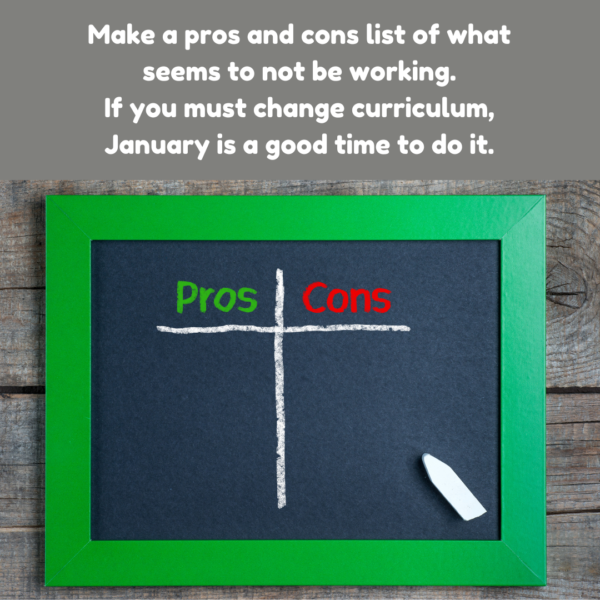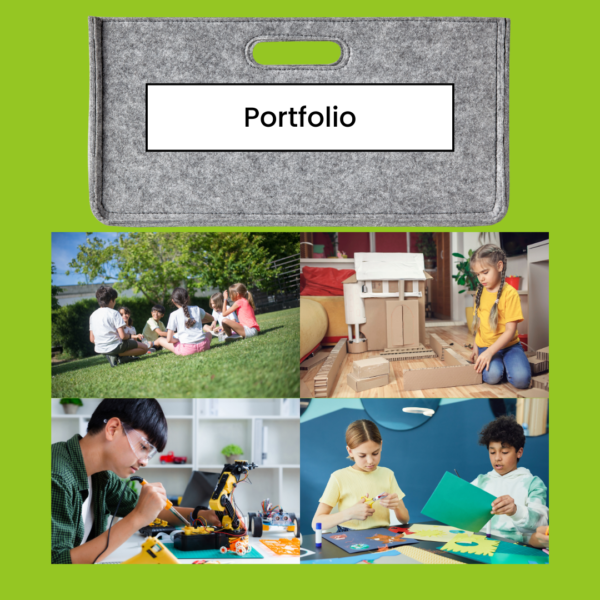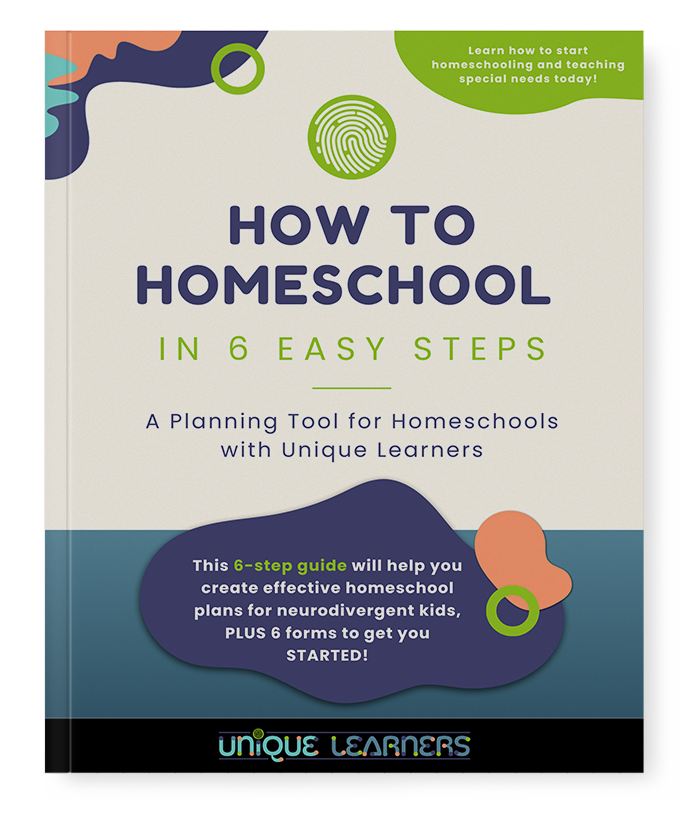Homeschooling and regrouping in January can be an effective way to reassess and make necessary adjustments to your homeschooling routine.

Here are a few suggestions to help you navigate this process:
Reflect on the past semester
Take some time to evaluate the progress and challenges you and your child faced during the previous months. Celebrate the accomplishments and identify areas that may require additional attention or improvement.
Enter with a new start in mind

Whether you are just starting now in January or you had been homeschooling already, January provides a great opportunity for a fresh start. Cozy up with read alouds and some hot chocolate. Try a new organizational strategy. Do outdoor activities in the snow – or if you are in the South, set up park days with your homeschool community.
Set new academic goals
Discuss with your child what they would like to achieve in the upcoming semester. Encourage them to set attainable and realistic goals that align with their interests and abilities. This will help provide direction and motivation for the months ahead.

Set up behavior goals
If your child has been resisting doing school work, think back to what may be causing the refusal. Do you have a consistent routine? Is the work too hard or too easy? Do you instruct or do your children have to learn everything on their own? Do you have any room for fun, hands-on learning in your routine? Do you praise and rewards work done on time and with good effort? Do you have consistent and reasonable consequences for resistant behavior? If any of these need to be adjusted, set up an incentive plan and a menu of consequences for those specific attitudes and work habits you want to train. Be sure you communicate your expectations to your child.
Review curriculum and materials

Evaluate the effectiveness of the curriculum and materials you have been using. Determine what is working well and what may need to be adjusted or changed. Consider seeking recommendations from other homeschooling families or online communities.
Plan a routine
Create a new routine that takes into account the goals you have set and any adjustments to the curriculum. Be sure to include regular breaks, physical activity, and time for hobbies or extracurricular activities. A well-structured schedule can help maintain a sense of routine and productivity.
Update your child’s portfolio

Some states require that homeschools keep a record of children’s work in a portfolio. Portfolios are not a big deal! You can keep actual work samples or take pictures. I keep a banker’s file box for each child. I put all school paper work for the semester into their boxes. In January and at the end of the school year, I go back through and throw away any work samples that we don’t want to keep.
For long-term, I keep a sample of handwriting and written expression, any tests (which we mostly don’t do), art work, and pictures of any activities or projects. If you don’t do testing, you can keep anecdotal notes of narrations or discussions. If you keep a grade book, grades can be part of the portfolio. Always take pictures of projects. Keep a running list of your read-aloud books and each child’s independent reading. Your portfolio can be completely digital pictures if that is your preference. Photos also make it easy to submit to the state if you are required to turn in work samples.
Seek support
Connect with homeschooling support groups, both online and offline, to gain insights and exchange ideas with fellow homeschoolers. Sharing experiences and learning from others can be valuable in refining your homeschooling approach. If you want to be part of the Unique Learners community, join our email list and like us on your favorite social media platform. You can always sent Sue an email if you have an individual question.
Try a unit study
If you are new to homeschooling and trying to transition to a new idea of what learning is about, deschooling is often a great idea. However, kids have already had a natural transition during winter break. You may want to consider easing into the homeschool world by doing a topical unit study before launching into a curriculum. That will give you time to do more research on the different homeschool approaches and order curriculum.
Remember, homeschooling offers flexibility and the ability to tailor education to your child’s individual needs. Use this regrouping opportunity in January to make any necessary modifications and create a positive and productive homeschooling environment for the rest of the academic year.
Here are a few links to places for ideas that you can use in January:
https://freedomhomeschooling.com/free-january-unit-studies-and-lessons/
https://yourbesthomeschool.com/tips-homeschooling-january/
https://www.lakeshorelearning.com/resources/free-resources/writing-prompt-calendars/january/
